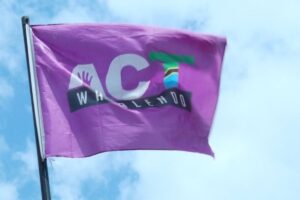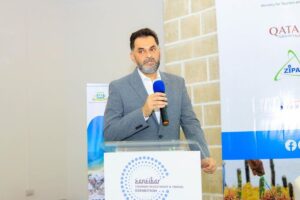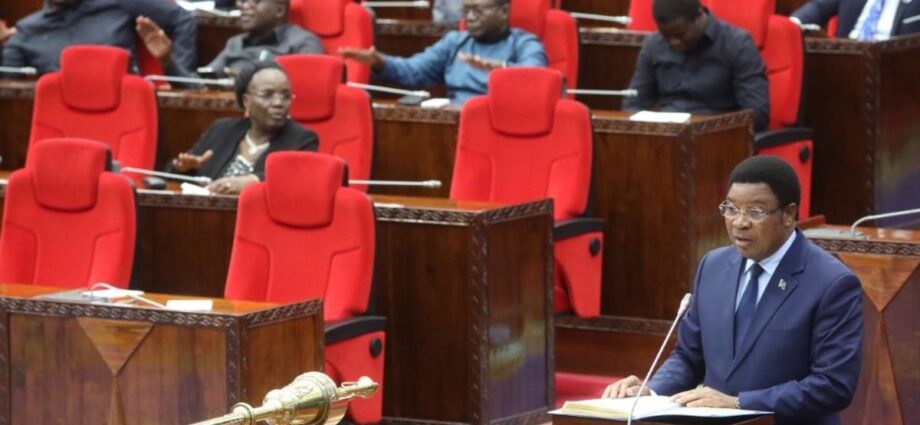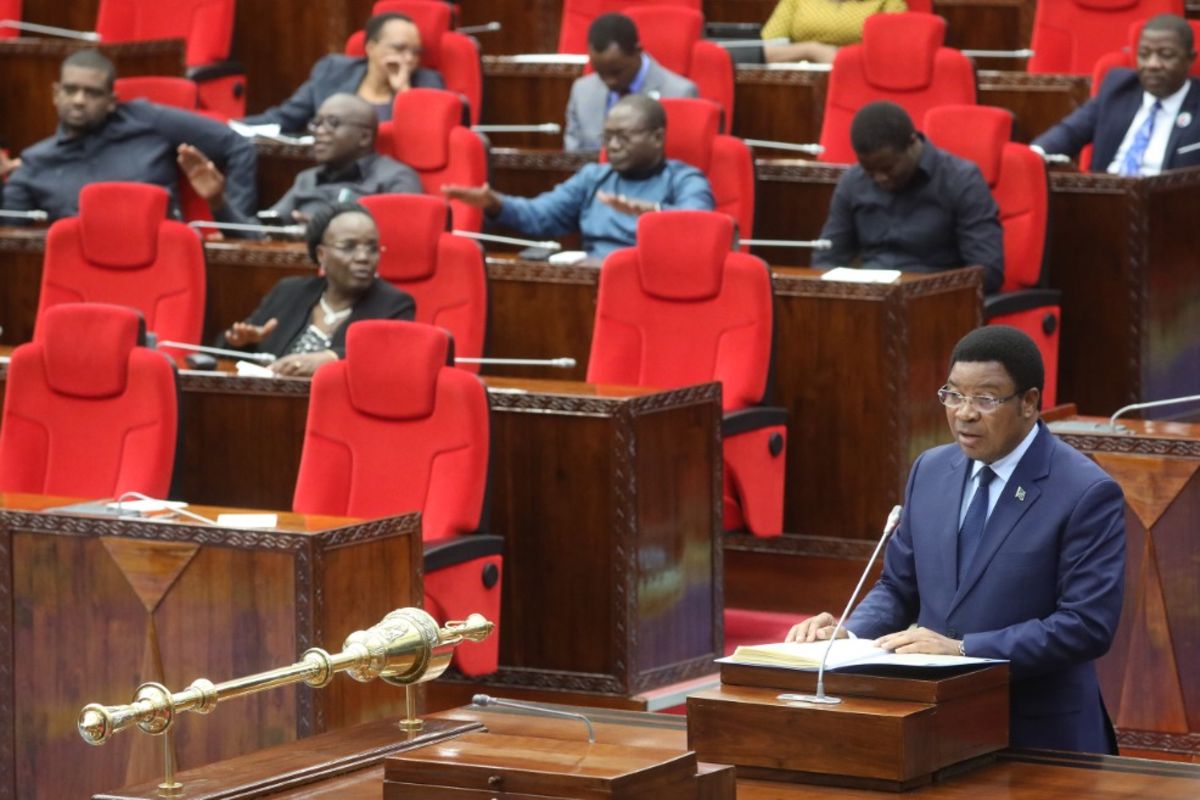A bit of context setting first. The past few years have been a difficult time for independent researchers in Tanzania. Information is power, as the saying goes. So perhaps it is not surprising that a highly centralised administration – one that sought tight control of all national political and economic activity – was wary of independent voices telling a story that challenged the official narrative, even if that story was rigorously evidence-based.
The most problematic aspects of governance in Tanzania over the past few years have recently been softened somewhat. President Samia Suluhu Hassan has a much more open view of politics and public debate. She has sometimes spoken approvingly of the role of the media, civil society and others in holding her government to account.
Independent research
This implied a relaxation of constraints on independent research. Twaweza was recently able to resume publication of data from our Sauti za Wananchi surveys – nationally representative surveys of citizens’ experiences and opinions, designed to make citizens’ voices heard in policy debates. Our launch in August of citizens’ views on the state of the national economy and on the mobile money transaction levy – tozo – was our first such event after a gap of four years.
Things have recently become interesting, but in a deeply troubling way. President Hassan’s administration is proposing amendments to the Commission for Science and Technology Act, 1986 (the Costech Act) that will seriously damage independent research in Tanzania.
I will come to the proposed amendments shortly, but first it is worth reviewing the journey researchers have been on over the past few years in Tanzania.
First, we had the Statistics Act, enacted in 2015 and amended several times since, that was beset with problems. It created confusion over who was allowed to collect and publish data and statistics. In 2017, the National Bureau of Statistics (NBS) issued a statement “reassuring” stakeholders that the Act does not “prohibit any person or agency from producing and publishing their own statistics”. But the same body took issue with a private company, GeoPoll, for doing exactly that.
Then, in September 2018, the same law was amended to make it a crime even to point out problems with official statistics, meaning that honest mistakes by government would go unnoticed and uncorrected. Further, the amendments required that anyone intending to communicate any statistical information must get the approval of the Statistician-General before doing so. It became an offence even for a journalist to publish an article that includes any statistics – even for a social media user to do this on Facebook or Instagram – without first getting NBS approval.
Earlier in mid-2018, Twaweza was in hot water for our work collecting and publishing data on citizens’ opinions and experiences – specifically for our Sauti za Wananchi surveys. Our right to collect this data and publish the findings was challenged. We were accused, wrongly, of not having research clearance from the Commission of Science and Technology (Costech) for the work, even though our implementing partner had obtained permission from NBS, as we and they had done previously without any problem.
Delightful new clause
In 2019, the Statistics Act was amended again to remove the most restrictive (and unworkable) elements, and added a delightful new clause stating that “Every person shall … have a right to collect and disseminate statistical information.” Twaweza exercised this right in August 2022 by launching Sauti data which brought citizens’ views to bear on a live, national policy debate.
Which is why the new amendments to the Costech Act are so disappointing. So what exactly do they say? There are two main areas of concern.
First, the amendments define research very broadly, to include “any type of systematic investigation, testing or evaluation designed to develop or contribute to a body of knowledge”. That will include activities that would not normally be considered research. For example, a journalist who systematically investigates public spending, or policing, or land use, or even football statistics, could well fall under the jurisdiction of the new law and thus be liable to be charged for not being registered as researcher.
Second, the law requires that researchers register with Costech, and that they get permits for each one of their research activities. This has previously been the normal practice for certain types of research – much academic research on natural sciences and social science has effectively followed this route for some years – but it had not previously been a legal requirement. And certain types of research, specifically medical research and in-person household surveys, have been cleared by other institutions such as the National Institute of Medical Research (NIMR) and NBS, rather than Costech.
In combination with the first point above, this substantially increases the administrative hurdles for all types of research. Medical researchers will now have to seek approval of Costech as well as NIMR, and those conducting surveys of the public (including Twaweza) will now need Costech permission too. For many, this seems reasonable. Why shouldn’t the government monitor and coordinate the various institutions conducting research across the country?
The experience of the past few years is instructive. When a law is written in a broad or imprecise way, those enforcing the law have a lot of discretion to pick and choose how they do so. Under the previous administration, some media houses were able to effectively ignore the Media Services Act while others found their activities tightly constrained. The vaguely-worded Cyber Crimes Act has allowed the police to target critical voices online, while allowing others to post extreme and defamatory content unchallenged.
With this law, the potential for abuse is huge. The broad definition of research, combined with the new legal requirement for all research activities to get permits, gives government the power to target those whose research challenges the official narrative. It will not matter whether that research is well designed, nor whether it produce insights that can inform and improve government decisions. If research reveals anything the government would prefer people not to know, it can be shut down.
Political authority first
To summarise, all research activity and scientific inquiry in Tanzania will be subject to political authority first. Discovery, innovation and progress based on evidence and fact will suffer. Policy decisions risk being made without the benefit of credible and independent knowledge, insights and advice. Scientific inquiry will suffer deep long-term damage, as individuals and institutions avoid asking interesting, promising questions for fear of arbitrary government interference. The country’s ambition of creating a “competitive economy capable of producing sustainable growth and shared benefits” will be dashed.
It’s not too late. There is still time for the government to consult further on the proposed amendments. A coalition of civil society organisations and research institutions submitted their joint input to the parliamentary committee on legal and constitutional affairs.
However, we are convinced that the President could make her commitment to an open, democratic society crystal clear with a simple decision to drop these proposed amendments to the Costech Act. Therein lies a greater promise to a transformational future for Tanzania.
Disclaimer: The opinion, views, statements expressed here are solely those of the author and do not necessarily represent the position of The Citizen, or ZNZ News
Share this news
This Year’s Most Read News Stories

Tanzania Confirms Second Marburg Outbreak After WHO Chief Visit
Dar es Salaam — Tanzania’s President Samia Suluhu Hassan has declared an outbreak of Marburg virus, confirming a single case in the northwestern region of Kagera after a meeting with WHO director-general Tedros Adhanom Ghebreyesus.
The confirmation follows days of speculation about a possible outbreak in the region, after the WHO reported a number of deaths suspected to be linked to the highly infectious disease.
While Tanzania’s Ministry of Health declared last week that all suspected cases had tested negative for Marburg, the WHO called for additional testing at international reference laboratories.
“We never know when an outbreak might occur in a neighbouring nation. So we ensure infection prevention control assessments at every point of care as routine as a morning greeting at our workplaces.”Amelia Clemence, public health researcher
Subsequent laboratory tests conducted at Kagera’s Kabaile Mobile Laboratory and confirmed in Dar es Salaam identified one positive case, while 25 other suspected cases tested negative, the president told a press conference in Dodoma, in the east of the country today (Monday).
“The epicentre has now shifted to Biharamulo district of Kagera,” she told the press conference, distinguishing this outbreak from the previous one centred in Bukoba district.
Tedros said the WHO would release US$3 million from its emergencies contingency fund to support efforts to contain the outbreak.
Health authorities stepped up surveillance and deployed emergency response teams after the WHO raised the alarm about nine suspected cases in the region, including eight deaths.
The suspected cases displayed symptoms consistent with Marburg infection, including headache, high fever, diarrhoea, and haemorrhagic complications, according to the WHO’s alert to member countries on 14 January. The organisation noted a case fatality rate of 89 per cent among the suspected cases.
“We appreciate the swift attention accorded by the WHO,” Hassan said.
She said her administration immediately investigated the WHO’s alert.
“The government took several measures, including the investigation of suspected individuals and the deployment of emergency response teams,” she added.
Cross-border transmission
The emergence of this case in a region that experienced Tanzania’s first-ever Marburg outbreak in March 2023 has raised concerns about cross-border transmission, particularly following Rwanda’s recent outbreak that infected 66 people and killed 15 before being declared over in December 2024.
The situation is particularly critical given Kagera’s position as a transport hub connecting four East African nations.
Amelia Clemence, a public health researcher working in the region, says constant vigilance is required.
“We never know when an outbreak might occur in a neighbouring nation. So we ensure infection prevention control assessments at every point of care as routine as a morning greeting at our workplaces.”
The Kagera region’s ecosystem, home to fruit bats that serve as natural reservoirs for the Marburg virus, adds another layer of complexity to disease surveillance efforts.
The virus, closely related to Ebola, spreads through contact with bodily fluids and can cause severe haemorrhagic fever.
Transparency urged
Elizabeth Sanga, shadow minister of health for Tanzania’s ACT Wazalendo opposition party, says greater transparency would help guide public health measures.

Sign up for free AllAfrica Newsletters
Get the latest in African news delivered straight to your inbox
“This could have helped to guide those who are traveling to the affected region to be more vigilant and prevent the risk of further spread,” she said.
WHO regional director for Africa Matshidiso Moeti says early notification of investigation outcomes is important.
“We stand ready to support the government in its efforts to investigate and ensure that measures are in place for an effective and rapid response,” she said, noting that existing national capacities built from previous health emergencies could be quickly mobilised.
The situation coincides with leadership changes in Tanzania’s Ministry of Health, with both the chief medical officer and permanent secretary being replaced.
This piece was produced by SciDev.Net’s Sub-Saharan Africa English desk.
Source: allafrica.com

ACT Unaware of Mwinyi’s joint committee on Zanzibar reforms
Opposition party ACT Wazalendo has said it is not aware of a special committee on reforms and has directed the party’s leadership to follow up on the decision of the Central Committee which directed its leaders to meet with President Hussein Ali Mwinyi.Continue Reading

Zanzibar’s tourism body chairman Rahim Bhaloo resigns
Bhaloo, who is also Chairman of the Zanzibar Commission for Tourism (ZCT), cited pressing family issues as the reason for his departure.Continue Reading












